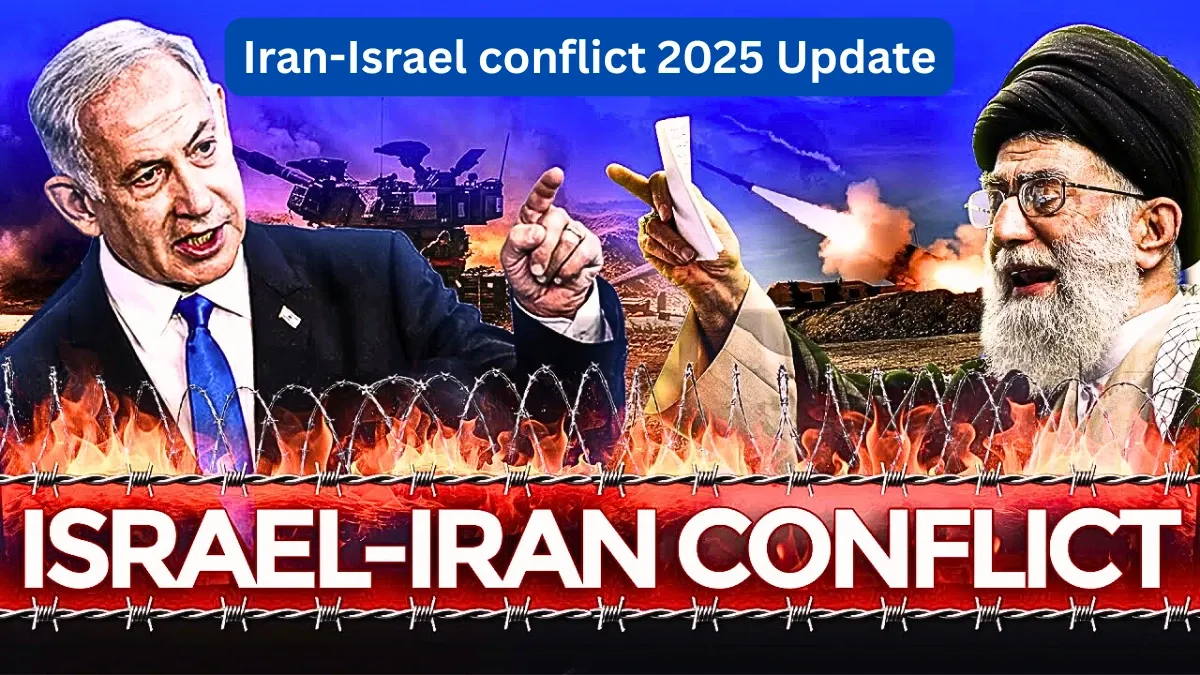The Iran-Israel conflict 2025 has entered a dangerous new phase, alarming world leaders and igniting fears of a broader regional war. Early Wednesday morning, Iran launched a series of missile strikes targeting Israeli military installations in the Golan Heights, responding to an earlier Israeli airstrike near Damascus that killed two senior Iranian commanders.
The tit-for-tat exchange marks one of the most intense escalations in the Iran-Israel conflict 2025, and Washington has issued an urgent call for de-escalation.
“We urge both sides to avoid further provocation. The U.S. stands by Israel’s right to defend itself but calls for restraint and diplomacy,” said Secretary of State Antony Blinken.
💥 What Happened?
According to Israeli Defense Forces (IDF), multiple Iranian missiles were intercepted by the Iron Dome, but two managed to hit non-civilian areas, causing minor injuries and structural damage.
In response, Israel launched air raids on Iranian Revolutionary Guard positions in Syria and Lebanon, killing at least 12 militants.
Iran’s Supreme Leader, Ayatollah Ali Khamenei, vowed revenge for what he called a “Zionist crime,” further inflaming tensions.
🌍 Why the World Is Watching
The Iran-Israel conflict 2025 threatens to engulf the wider Middle East, dragging in regional and global powers. Here's why it matters:
- U.S. troops in Iraq and Syria are on high alert, fearing proxy attacks by Iran-backed militias.
- Global oil prices surged by 4% overnight amid fears of disruption in the Strait of Hormuz.
- NATO allies have called emergency meetings to discuss regional stability.
- China and Russia have condemned Israeli actions, complicating diplomatic efforts.
🛰️ Cyber and Drone Warfare Rising
Analysts are warning that the Iran-Israel conflict 2025 is also being fought online and through unmanned systems. Iran reportedly attempted cyberattacks on Israeli infrastructure earlier this week, while Israel used AI-powered drones to take out Iranian weapons convoys near the Iraq-Syria border.

What This Means for the U.S.
America's role in the Iran-Israel conflict 2025 is under intense scrutiny:
- U.S. CENTCOM forces in the region are reinforcing defenses.
- Lawmakers in Congress are divided—some calling for increased military support for Israel, others urging a diplomatic resolution.
- Homeland Security has raised alerts for possible retaliatory cyberattacks on U.S. systems.
“We are closely monitoring the situation and will take all necessary actions to protect American personnel and interests,” said Pentagon spokesperson Gen. Laura Mitchell.
📊 Economic Impact
The conflict's economic ripples are already being felt:
- Crude oil prices hit $94 per barrel.
- Gold prices rose as investors seek safe havens.
- Stock markets dipped across Asia and Europe, with Wall Street bracing for volatility.
📅 What’s Next?
Experts believe the coming days are critical. If Hezbollah in Lebanon joins the fight, or if Israel targets deeper into Iranian territory, the conflict could spiral into a full-scale war.
Diplomatic efforts by the United Nations, Qatar, and Turkey are underway behind the scenes, but so far, neither side is backing down.
The Iran-Israel conflict 2025 has already caused destruction, fear, and political tremors worldwide. As the situation unfolds, the world watches with bated breath, hoping for diplomacy before the fire spreads too far.

